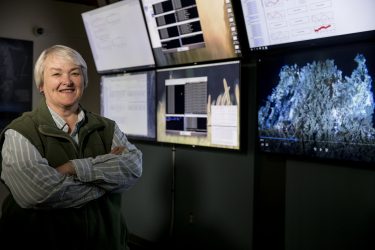
The National Science Foundation announced that it has awarded a coalition of academic and oceanographic research organizations a five-year, $220 million contract to operate and maintain the Ocean Observatories Initiative. The coalition, led by the Woods Hole Oceanographic Institution, with direction from the NSF and guidance from the OOI Facilities Board, will include the University of Washington, Oregon State University and Rutgers, The State University of New Jersey.
The OOI is an advanced system of integrated scientific platforms and sensors that measure physical, chemical, geological and biological properties and processes from the seafloor to the sea surface in key coastal and open-ocean sites of the Atlantic and Pacific. It has been designed to address critical questions about the Earth–ocean system, including climate change, ecosystem variability, ocean acidification, plate-scale seismicity, submarine volcanoes and carbon cycling with the goal of better understanding the ocean and our planet. All OOI data are freely available online.
Each institution will continue to operate and maintain the portion of OOI assets for which it is currently responsible. Starting in 2011 and fully operational in 2016, UW will continue to operate the Regional Cabled Array — the single largest piece of the OOI — that extends across the Juan de Fuca tectonic plate and overlying ocean. It includes more than 140 instruments and six tethered robots laden with instruments that collect data from about 9,500 feet beneath the ocean’s surface to the near-surface environments.
Read more at UW Today »
